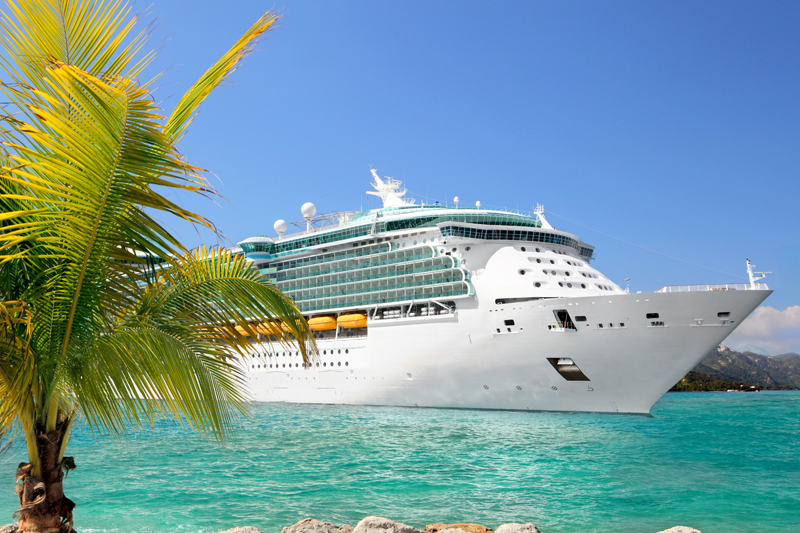11 Great European River Cruise Tips

Europe is the world’s leading river cruise destination, and there are plenty of scenic voyages from which to choose. These immersive sailings offer a rich tapestry of authentic cultural, culinary, and learning experiences.
River cruises are a fantastic way to explore Europe’s magnificent inland cities and picturesque small villages, and these highly-inclusive voyages offer an excellent value. Since you only unpack once, river cruises are a convenient and hassle-free way to experience multiple European countries on vacation as well.
If you’re planning to sail along Europe’s spectacular rivers, here are 11 top European river cruise tips to help you prepare for your trip.
1. Make Plans To Arrive A Day or Two Early. Getting to a European river cruise port often involves flight connections. Delays and flight cancellations can be quite common these days. When snafus like that happen, guests (and their luggage) can sometimes miss the ship. Arrive at your embarkation port at least a day or two in advance to allow for potential delays and adjust to time zone changes. In addition, attractions in departure cities like Amsterdam, Budapest, Paris, and Venice are difficult to pack into just one day. Plan to spend some extra time there and explore.
2. Research Destinations In Advance. Exploring vibrant cities, visiting historic sites and enjoying authentic local experiences are the major reasons vacationers come to Europe. That’s what the river cruise experience is all about, so spend time researching your ports of call and planning your shore excursions. Many river cruise lines offer included excursions, but some of the best options in certain ports of call may necessitate an additional cost. Make advance reservations for excursions and private tours, as popular choices can sell out in advance.
3. Make Copies Of Key Documents. It’s important to make copies of documents such as your passport, medical cards, travel itineraries, boarding materials, and other items. Keep copies with you in several places and leave one set at home with someone who could fax them to you if needed. Also, keep a copy of your credit card numbers, ATM number, and contact information with you in case one or all of your cards are lost or stolen. Leave your list of credit card and ATM numbers in the safe in your room. If there's any problem with a lost or stolen card, consult your list and call the credit card company so you can immediately have your credit card blocked.
4. Research International Cellular Service Plan Options. Check with your cellular service provider to learn about international cell service plans, what’s included, and when the plan will be activated. Many plans offer international voice, data, and text services for a relatively reasonable daily charge. If you choose this option, note the steps to take if your cellular plan doesn’t automatically connect. Alternatively, some international travelers buy an eSIM or purchase a local SIM card when they arrive in Europe. It’s also possible to make cheap international calls with apps like Skype, Viber and WhatsApp.
5. Purchase Power Adaptor Plugs. If you’re planning to stay in a European hotel pre- or post-cruise, you will need to purchase a power adaptor or two to plug your devices into the hotel’s power outlets. While some hotels have USB ports in their rooms, many others haven’t gotten there yet. You may also need European power adaptor plugs in your river cruise ship stateroom. In addition, it’s wise to bring a backup battery pack to recharge cell phones and other mobile devices on long full-day tours and excursions.
6. Check On The Weather. Rather than make assumptions about what the temperatures will be in your European ports of call, check online several days in advance. While forecasts can vary, it’s helpful to know if a streak of blazing hot weather will be rolling in or if your ports of call are expected to get lots of rain while you’re there. Being informed will help you to pack correctly and have the right clothes for your European river cruise.
7. Get A Translation App Or Pocket Guide. European river cruises typically visit ports in multiple countries. Often, you’ll find that it’s helpful to know several languages on your trip. Consider downloading Google Translate before you depart on your trip, and make sure to download the languages you’ll need while you still have free Internet service. There are also a variety of foreign language apps available. If it’s easier, purchase one or more pocket translation guides for your trip.
8. Pack Light. River cruise ship staterooms can be relatively compact, and storage space is limited. Make a detailed list of what you need to bring, and pack smart. River cruise dress codes are generally quite relaxed, so opt for comfortable clothing. Choose mix-and-match options, and check weather forecasts in advance. Most ships offer laundry service, which is a big plus. Plan to wear shoes with non-slip soles and good support features, and make sure they’re fully broken in before traveling.
9. Contact Your Credit Card Companies. Credit cards are one of the safest ways to pay for items while traveling. Call your credit card companies several days before departure to let them know that you'll be traveling, your dates of travel, and the destinations you will be visiting. Most credit card companies no longer require these international travel notifications, but some still do. It's wise to check just in case.
While contacting your credit card companies, check to see if they impose additional fees for using your credit cards internationally. This information will help you to determine which card(s) to use. You may want to apply for a credit card that does not impose international fees well before your trip.
Be aware of the currencies and foreign exchange rates for every country to which you’ll be traveling. In some areas, adding a 3-10% surcharge on any items purchased with a credit card may be customary. You may also find that some cards, such as Visa or MasterCard, are accepted more readily than others.
10. Make Arrangements For Cash. If you plan to bring an ATM card along to use on your European cruise, contact your bank in advance and let them know where you’ll be traveling. Make sure to include countries you’ll be connecting through, just in case you miss your flight and must stay there overnight. Many banks no longer require this step, but some still do.
Check on the safety and availability of ATM outlets as well. Use ATMs that are enclosed inside a reputable bank wherever possible. These provide the most protection and are less likely to be units that have been compromised with skimmers. When at the bank, look carefully at the ATMs to ensure they all look the same. Push around on everything to see if anything moves, which can signify tampering. As you enter your PIN, cover the keypad with your hand to protect against hidden cameras.
It can also be helpful to arrive in Europe with some local currency, which you can often obtain through your local bank. Having a limited amount of local currency can be particularly helpful if you’re staying at a hotel before your cruise and want to make sure you’re set in case your ATM card doesn’t work. Some taxis in Europe do not take credit cards.
11. Invest In Travel Insurance. Trip insurance is a wise purchase, particularly for a European river cruise. Travel insurance will provide peace of mind and protect your vacation investment in case unforeseen transportation problems, a family illness, or other issues arise. When buying your insurance, make sure your flights are included in the coverage. Some vacationers buy travel insurance directly from their cruise line when purchasing their river cruise and then purchase their flights separately. When a flight problem arises, they can find that their trip insurance only covers the cruise. Make sure you understand what is covered by the trip insurance policy you’re purchasing and read the fine print carefully. Trip insurance can also provide coverage against lost or stolen items, although it typically doesn’t cover stolen cash. Travel insurance companies can also provide a travel concierge to help you if you’re robbed, your baggage is delayed or lost, or if other unfortunate events occur.
River cruises are a fantastic way to explore Europe’s magnificent inland cities and picturesque small villages, and these highly-inclusive voyages offer an excellent value. Since you only unpack once, river cruises are a convenient and hassle-free way to experience multiple European countries on vacation as well.
If you’re planning to sail along Europe’s spectacular rivers, here are 11 top European river cruise tips to help you prepare for your trip.
1. Make Plans To Arrive A Day or Two Early. Getting to a European river cruise port often involves flight connections. Delays and flight cancellations can be quite common these days. When snafus like that happen, guests (and their luggage) can sometimes miss the ship. Arrive at your embarkation port at least a day or two in advance to allow for potential delays and adjust to time zone changes. In addition, attractions in departure cities like Amsterdam, Budapest, Paris, and Venice are difficult to pack into just one day. Plan to spend some extra time there and explore.
2. Research Destinations In Advance. Exploring vibrant cities, visiting historic sites and enjoying authentic local experiences are the major reasons vacationers come to Europe. That’s what the river cruise experience is all about, so spend time researching your ports of call and planning your shore excursions. Many river cruise lines offer included excursions, but some of the best options in certain ports of call may necessitate an additional cost. Make advance reservations for excursions and private tours, as popular choices can sell out in advance.
3. Make Copies Of Key Documents. It’s important to make copies of documents such as your passport, medical cards, travel itineraries, boarding materials, and other items. Keep copies with you in several places and leave one set at home with someone who could fax them to you if needed. Also, keep a copy of your credit card numbers, ATM number, and contact information with you in case one or all of your cards are lost or stolen. Leave your list of credit card and ATM numbers in the safe in your room. If there's any problem with a lost or stolen card, consult your list and call the credit card company so you can immediately have your credit card blocked.
4. Research International Cellular Service Plan Options. Check with your cellular service provider to learn about international cell service plans, what’s included, and when the plan will be activated. Many plans offer international voice, data, and text services for a relatively reasonable daily charge. If you choose this option, note the steps to take if your cellular plan doesn’t automatically connect. Alternatively, some international travelers buy an eSIM or purchase a local SIM card when they arrive in Europe. It’s also possible to make cheap international calls with apps like Skype, Viber and WhatsApp.
5. Purchase Power Adaptor Plugs. If you’re planning to stay in a European hotel pre- or post-cruise, you will need to purchase a power adaptor or two to plug your devices into the hotel’s power outlets. While some hotels have USB ports in their rooms, many others haven’t gotten there yet. You may also need European power adaptor plugs in your river cruise ship stateroom. In addition, it’s wise to bring a backup battery pack to recharge cell phones and other mobile devices on long full-day tours and excursions.
6. Check On The Weather. Rather than make assumptions about what the temperatures will be in your European ports of call, check online several days in advance. While forecasts can vary, it’s helpful to know if a streak of blazing hot weather will be rolling in or if your ports of call are expected to get lots of rain while you’re there. Being informed will help you to pack correctly and have the right clothes for your European river cruise.
7. Get A Translation App Or Pocket Guide. European river cruises typically visit ports in multiple countries. Often, you’ll find that it’s helpful to know several languages on your trip. Consider downloading Google Translate before you depart on your trip, and make sure to download the languages you’ll need while you still have free Internet service. There are also a variety of foreign language apps available. If it’s easier, purchase one or more pocket translation guides for your trip.
8. Pack Light. River cruise ship staterooms can be relatively compact, and storage space is limited. Make a detailed list of what you need to bring, and pack smart. River cruise dress codes are generally quite relaxed, so opt for comfortable clothing. Choose mix-and-match options, and check weather forecasts in advance. Most ships offer laundry service, which is a big plus. Plan to wear shoes with non-slip soles and good support features, and make sure they’re fully broken in before traveling.
9. Contact Your Credit Card Companies. Credit cards are one of the safest ways to pay for items while traveling. Call your credit card companies several days before departure to let them know that you'll be traveling, your dates of travel, and the destinations you will be visiting. Most credit card companies no longer require these international travel notifications, but some still do. It's wise to check just in case.
While contacting your credit card companies, check to see if they impose additional fees for using your credit cards internationally. This information will help you to determine which card(s) to use. You may want to apply for a credit card that does not impose international fees well before your trip.
Be aware of the currencies and foreign exchange rates for every country to which you’ll be traveling. In some areas, adding a 3-10% surcharge on any items purchased with a credit card may be customary. You may also find that some cards, such as Visa or MasterCard, are accepted more readily than others.
10. Make Arrangements For Cash. If you plan to bring an ATM card along to use on your European cruise, contact your bank in advance and let them know where you’ll be traveling. Make sure to include countries you’ll be connecting through, just in case you miss your flight and must stay there overnight. Many banks no longer require this step, but some still do.
Check on the safety and availability of ATM outlets as well. Use ATMs that are enclosed inside a reputable bank wherever possible. These provide the most protection and are less likely to be units that have been compromised with skimmers. When at the bank, look carefully at the ATMs to ensure they all look the same. Push around on everything to see if anything moves, which can signify tampering. As you enter your PIN, cover the keypad with your hand to protect against hidden cameras.
It can also be helpful to arrive in Europe with some local currency, which you can often obtain through your local bank. Having a limited amount of local currency can be particularly helpful if you’re staying at a hotel before your cruise and want to make sure you’re set in case your ATM card doesn’t work. Some taxis in Europe do not take credit cards.
11. Invest In Travel Insurance. Trip insurance is a wise purchase, particularly for a European river cruise. Travel insurance will provide peace of mind and protect your vacation investment in case unforeseen transportation problems, a family illness, or other issues arise. When buying your insurance, make sure your flights are included in the coverage. Some vacationers buy travel insurance directly from their cruise line when purchasing their river cruise and then purchase their flights separately. When a flight problem arises, they can find that their trip insurance only covers the cruise. Make sure you understand what is covered by the trip insurance policy you’re purchasing and read the fine print carefully. Trip insurance can also provide coverage against lost or stolen items, although it typically doesn’t cover stolen cash. Travel insurance companies can also provide a travel concierge to help you if you’re robbed, your baggage is delayed or lost, or if other unfortunate events occur.

Related Articles
Editor's Picks Articles
Top Ten Articles
Previous Features
Site Map
Content copyright © 2023 by Nancy Schretter. All rights reserved.
This content was written by Nancy Schretter. If you wish to use this content in any manner, you need written permission. Contact Nancy Schretter for details.






